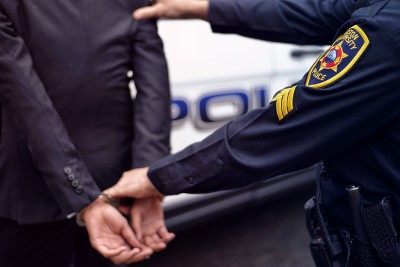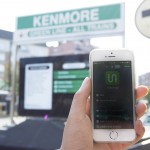
Massachusetts Gov. Charlie Baker signed a bipartisan legislation Wednesday to reduce re-entry barriers for those within the commonwealth who carry drug convictions, according to a Wednesday press release.
The release stated that those released from jail with drug convictions will no longer face a suspended driver’s license or $500 reinstatement fee. The bill will help those who have been convicted re-enter society by finding employment and supporting their families.
Baker said in the release that the legislation is a notable step toward improving the criminal justice system in Massachusetts.
“As the Commonwealth takes important steps to battle substance abuse and reexamine our criminal justice system, I am pleased to sign legislation providing opportunities for those convicted of drug offenses and who have served their time to re-enter society, find and keep a job and support their families,” Baker said in the release.
Approximately 7,000 people each year in Massachusetts have their driver’s licenses suspended due to drug offenses that are unrelated to the operation of automobiles. The $500 reinstatement fee previously acted as an unnecessary obstacle for low-income individuals, according to the release.
Matthew Hoffman, program director of Boston Alcohol and Substance Abuse Programs, said the license suspension discriminates against drug users, as other criminal offenses are not met with the same punishment.
“It is actually discriminatory,” Hoffman said. “I remember thinking at the time, you can be a mass murderer, but you won’t have your license taken away. Somehow in their minds, the drug traffic and other drug-related offenses are worse than being a mass murderer or a child molester. It really doesn’t make much sense.”
Hoffman noted that there is no evidence to show that suspending driver’s licenses deters drug behavior in any way.
“My feeling is you did the crime, you do the time and somehow there is a balance to that,” Hoffman said. “You have paid the price of your offense, you have suffered the consequences. Why add an extra punishment?”
Hoffman said the suspended license and $500 reinstatement fee were put into effect in 1991. He added that these laws were a response to a “wave of disapproval” surrounding drug use during the time legislation was passed.
“There is a wave of enthusiasm for a particular issue, and in the fervor behind this particular issue, a lot of silly laws get passed,” Hoffman said. “At that time, there was a wave of disapproval of drug use, particularly drug dealing, and I think the driver’s license was part of that enthusiasm.”
Massachusetts Speaker of the House Robert DeLeo (D-Winthrop) expressed thanks in the release for individuals who stepped forward and told their stories to help get this bill passed.
“We must seize every opportunity possible to help residents reintegrate into society, find fulfilling jobs and support their families,” DeLeo said in the release. “This legislation is an important part of that effort.”
Several Boston residents were pleased to hear of Baker signing the legislation.
Jael Carroll, 66, of Brighton, said once a convict has served time, there should be no remaining punishment.
“I think giving people a second chance is always good,” she said. “They don’t have any victim besides themselves and should not be penalized when they are trying to get back on their feet.”
Luke Tubinis, 25, of Brighton, said the bill will allow those released to provide for their families.
“It is a really great measure,” he said. “There was recently a big job fair for ex-cons. The Globe was there … It is pretty much proven at this point — this helps stop the offenders. That, in turn, helps them with their families and to be there for their kids.”
Derek Stryer, 43, of South Boston, said the bill will be helpful in allowing citizens to re-enter into society.
“I think it’s important to help people as they’re trying to enter back into daily life,” he said. “I’m glad they’re trying to make it easier for them.”




